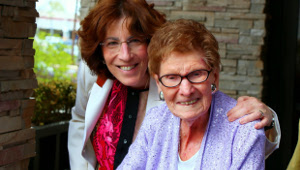The aging population: Is the world ready for 2050?

Dr. Eric B. Larson adds the global angle to Dr. Andrea's LaCroix's post about the importance of maximizing functionality and activity in older people.
Yesterday, Dr. Andrea LaCroix posted about the work she and others are doing to get ready for a U.S. population that, in 2050, will have double the number of people over age 65 that we have today. I agree with Andrea: Maintaining function in older people is indeed a major concern and not just in the United States. Two articles this year in The Lancet point out some global implications of the points in Andrea's post.
One article (Beard and Bloom, "Towards a comprehensive public health response to population ageing," addresses the need for a comprehensive public health approach to aging that can be applied worldwide. The authors call for an approach that is sensitive to the needs of subpopulations, such as people with genetically determined health needs or low socioeconomic status. The paper points out evidence gaps in our understanding of functionality and life quality in aging populations. It calls for more knowledge about preventing infectious disease in older people and using technology to promote health during aging.
The other article (Davis and Brayne, "Ageing, health, and social care: reframing the discussion," is a commentary that promotes integrated care for older people that considers their acute and long-term medical needs and monitors their functionality. I particularly commend the authors for this comment, which I find to be right on target. Their ideas support Andrea's and set an ambitious goal for all of us to pursue. The authors point out that evidence-based, integrated care could reduce inequalities between people who have different access to health resources and programs.
Any readers interested in this cause should read the Lancet pieces. (Available through subscription only, but many university libraries have access. You can also contact the authors for a copy). I urge everyone to advocate for health policy that emphasizes comprehensive, integrated care that is based on evidence—like the results we expect to get from Dr. Andrea LaCroix's Women’s Health Initiative Strong & Healthy (WHISH) trial on scaling up physical activity programs for people of all ages.
by Eric B. Larson, MD, MPH
Related

The aging population: Are we ready for 2050?
Dr. Andrea LaCroix writes that in 35 years, the American population aged 65+ will double. What can we do now for their health and independence?


